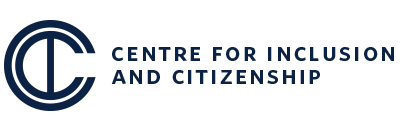An intensive summer course at UBC Vancouver.
4 Intensive Days: July 2 – 5, 2010
Presented by the Centre for Inclusion and Citizenship in Partnership with The Hebrew University of Jerusalem.
This course is being taught in conjunction with the Hebrew University of Jerusalem. Eight students from Israel will join UBC Social Work students and community learners for a four day intensive course. The course is open to all members of the community who want to learn more about how progressive theories of disability can influence our practice and policy. As this course is being taught for credit to the HUJ and UBC students, the level of instruction will be in line with an undergraduate University course. The course will require attendance 9am-5pm for all four days and may also involve some evening activities. Community members will receive a certificate of completion. Full course details will follow.
Course Instructors:
- Dr. Tim Stainton, Professor, UBC School of Social Work & Co-Director, Centre for Inclusion and Citizenship
- Dr. Shiri Werner, Senior Lecturer, The Paul Baerwald School of Social Work and Social Welfare Associate Professor, Hebrew University of Jerusalem
- Guest speakers and films will augment the lectures.
Background to the course:
This course will provide in-depth knowledge into progressive models of disability, notably the social model and identity based models and their implications for the helping professionals and their work. The course will explore and examine the junctions between theoretical, cultural, societal, historical and ethical perspectives in the disability field and how these perspectives influence professional practice, policy perspectives and, consequently, the lives of persons with disabilities. The course will allow for in-depth learning via lectures on up-to-date theoretical perspectives and research studies in the field, open and critical discussion of diverse perspectives, together with meetings with professionals, service providers and individuals with disabilities themselves. By utilizing varied teaching techniques we hope to expand students’ knowledge on: 1) the social perspective of disability and its influence on how professionals perceive individuals with disabilities and view their roles, 2) disability and identity, 3) historical, cultural and societal influences on the lives of persons with disabilities, and 4) the way the social perspective of disability could be promoted within professional practice by looking at ethical aspects of disability and practice challenges.
Day 1: Introduction and theories in disabilities
This day will be devoted to provide an introduction and background to the disability field. We will define the concept of disability and examine how various models have viewed it through different lenses.
Day 2: Disability rights, arts and social inclusion
This day will focus on key issue in disability rights and inclusion using film, discussion and guest speakers. We will also focus on inclusive education as a cornerstone for inclusion.
Day 3: Service and support models
This day will focus on service models and how they are influenced by critical disability studies.
Day 4: Cultural, societal and ethical influences on the lives of persons with disabilities
This day will focus on how culture and society influence and shape the way that persons with disabilities are perceived and have been treated within society. We will also discuss some ethical issues and how these are informed based on critical disability studies.
A full syllabus will be available by May. For more information please contact Tim Stainton at timst@mail.ubc.ca
Registration Fee for a limited number of Community Learners is $600.00 CAD.
Please contact Cindy Chapman at cic@ubc.ubc.ca to register.
